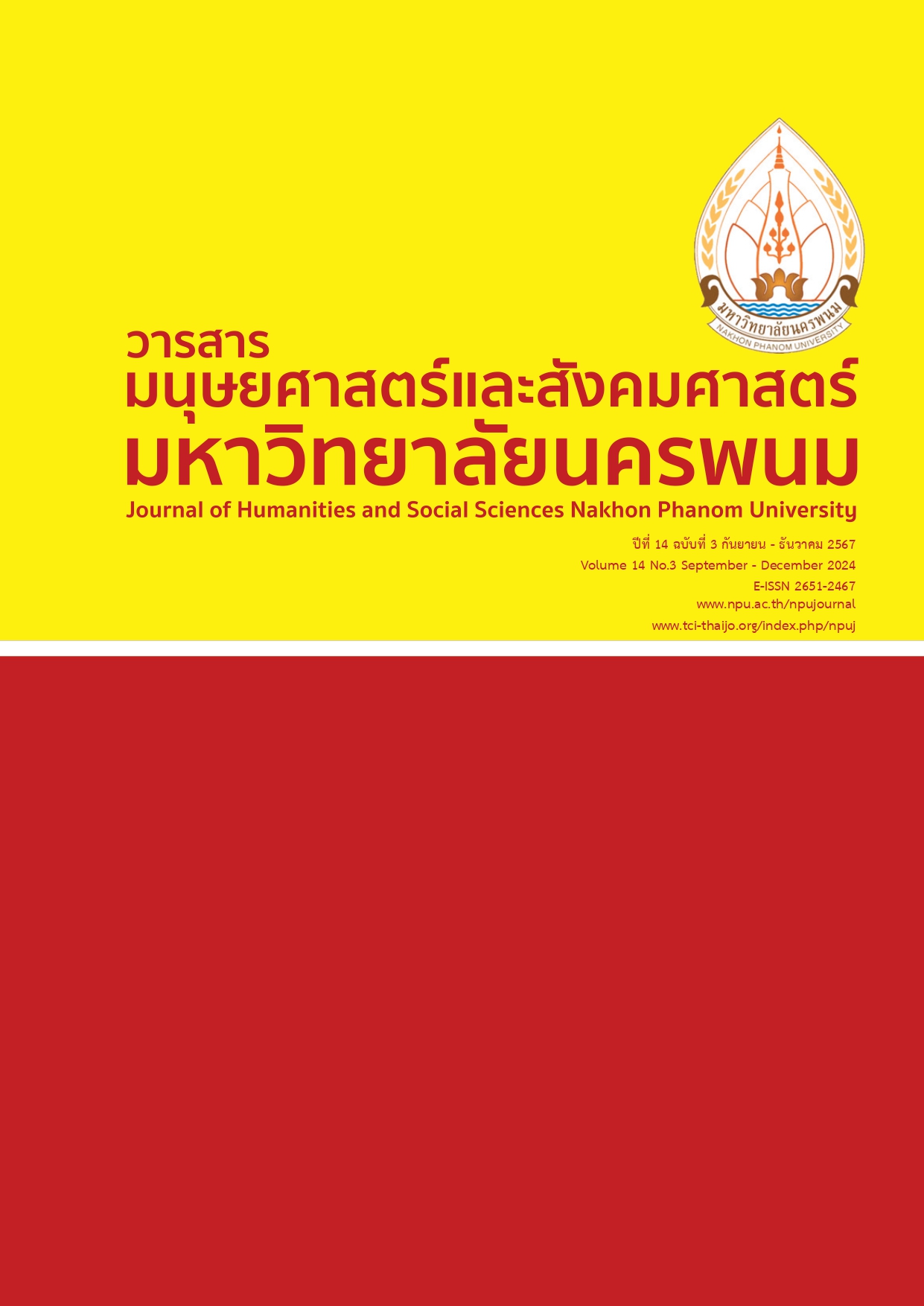The อิทธิพลของสัญญาทางจิตวิทยาที่มีผลต่อความพึงพอใจในงานและผลการปฏิบัติงาน
Main Article Content
บทคัดย่อ
การวิจัยครั้งนี้มีวัตถุประสงค์เพื่อศึกษาความสัมพันธ์และผลกระทบของสัญญาทางจิตวิทยาที่มีต่อความพึงพอใจในงาน ผลกระทบของความพึงพอใจในงานที่มีต่อผลการปฏิบัติงาน และผลกระทบของการจัดการทรัพยากรมนุษย์ อย่างมีประสิทธิผลที่มีต่อสัญญาทางจิตวิทยา และผลกระทบของการจัดการทรัพยากรมนุษย์อย่างมีประสิทธิผลที่มีต่อความพึงพอใจในงาน นอกจากนี้ยังศึกษาการทำหน้าที่เป็นตัวแปรส่งผ่านของ สัญญาทางจิตวิทยา ที่มีต่อความสัมพันธ์ระหว่าง การจัดการทรัพยากรมนุษย์อย่างมีประสิทธิผล และความพึงพอใจในงาน และความสัมพันธ์ระหว่าง การกำกับดูแลที่มีประสิทธิภาพ และความพึงพอใจในงาน การวิจัยครั้งนี้เป็นการวิจัยเชิงปริมาณ ใช้แบบสอบถามเป็นเครื่องมือในการเก็บรวบรวมข้อมูล จากพนักงานบริษัททั่วไป จำนวน 200 ตัวอย่าง ใช้กระบวนการสุ่มตัวอย่างโดยไม่ใช้หลักความน่าจะเป็นโดยใช้วิธีเลือกตัวอย่างตามสะดวก วิเคราะห์สถิติเชิงอนุมานด้วยโมเดลสมการโครงสร้าง (SEM)การวิเคราะห์ความกลมกลืนของโมเดลสมการโครงสร้าง และการวิเคราะห์ค่าสัมประสิทธิ์อิทธิพลมาตรฐานทางตรงและทางอ้อม ผลการวิจัยพบว่า 1) สัญญาทางจิตวิทยามีผลกระทบต่อความพึงพอใจในงาน 2) ความพึงพอใจในงานมีผลกระทบต่อผลการปฏิบัติงาน 3) การจัดการทรัพยากรมนุษย์อย่างมีประสิทธิผลไม่มีผลกระทบต่อสัญญาทางจิตวิทยา 4) สัญญาทางจิตวิทยาไม่ได้มีหน้าที่เป็นตัวแปรส่งผ่านในความสัมพันธ์ระหว่างการจัดการทรัพยากรมนุษย์อย่างมีประสิทธิผล และความพึงพอใจในงาน 5) สัญญาทางจิตวิทยามีหน้าที่เป็นตัวแปรส่งผ่านแบบสมบูรณ์ ในความสัมพันธ์ระหว่างการกำกับดูแลที่มีประสิทธิภาพ และความพึงพอใจในงาน
Article Details

อนุญาตภายใต้เงื่อนไข Creative Commons Attribution-NonCommercial-NoDerivatives 4.0 International License.
เอกสารอ้างอิง
Appman (2024). 5 Challenges for HR in 2024. Retrieved May 2024, from https://www.appman.co.th/5-challenges-for-hr-in-2024/
Armstrong, M. &Taylor, S. (2014). Armstrong's Handbook of Human Resource Management Practice: Edition 13. United Kingdom ; Kogan page.
Azim, A. M. M., Hassan, M. S., Zaid, D. S. & Daud, M. A. (2020). The influence of supervisor support, organizational trust on workplace deviant behavior: Do psychological contract matter?. International Journal of Academic Research in Business and Social Sciences, 10(2),116-132. doi:10.6007/ijarbss/ v10-i2/6895
Campbell, J. P. (1990). Modeling the performance prediction problem in industrial and organizational psychology. In M. D. Dunnette (Ed.), Handbook of industrial and organizational psychology, (Vol. 1, pp. 687-732). Palo Alto, CA, US : Consulting Psychologists Press, xxvii.
Cascio, W. F. (2006). The Economic Impact of Employee Behaviors on Organizational Performance. In E. E. Lawler & J. O’Toole (Eds.), America at Work: Choices and Challenges (pp. 241-256). New York : Palgrave Macmillan US.
Collier, J. E. (2020). Applied structural equation modeling using Amos: Basic to advanced techniques. London, England : Routledge.
Conway, N. & Briner, R. B. (2005). Understanding psychological contracts at work: A critical evaluation of theory and research. United Kingdom : Oxford University Press.
Fornell, C. & Larcker, D. F. (1981). Structural equation models with unobservable variables and measurement error: Algebra and statistics. JMR, Journal of Marketing Research, 18(3),382-388. doi:10.2307/3150980
Goetsch, D. L. (2002). Effective Supervision: A Guidebook for Supervisors, Team Leaders, and Work Coaches. US : Prentice Hall.
Guest, D. E., Paauwe, J. & Wright, P. M. (2012). HRM and Performance : Achievements and Challenges. New Jersey : Wiley.
Hair, J. F., Risher, J. J., Sarstedt, M. & Ringle, C. M. (2019). When to use and how to report the results of PLS-SEM. European Business Review, 31(1),2-24. doi:10.1108/ebr-11-2018-0203
Karani, A., Trivedi, P. & Thanki, H. (2022). Psychological contract and work outcomes during COVID-19 pandemic. Journal of Organizational Effectiveness People and Performance, 9(1),149-168. doi:10. 1108/joepp-09-2020-0186
Kutaula, S., Gillani, A. & Budhwar, P. S. (2020). An analysis of employment relationships in Asia using psychological contract theory: A review and research agenda. Human Resource Management Review, 30(4),100707. doi:10.1016/j.hrmr.2019.100707
Loan, L. (2020). The influence of organizational commitment on employees’ job performance: The mediating role of job satisfaction. Management Science Letters, 10(14),3307-3312. doi:10.5267/j.msl.2020.6.007
Locke, E. A. (1976). The nature and causes of job satisfaction. In M. D. Dunnette (Ed.), Handbook of industrial and organizational psychology (pp. 1297-1343). Chicago, IL : Rand McNally.
Northouse, P. G. (2018). Leadership: Theory and practice. Thousand Oaks, CA : SAGE Publications.
Putsom, W., Suwannarat, P. & Songsrirote, N., (2019). The Effect of Entrepreneurial Leadership, Value Creation and Automotive Parts Manufacturing Businesses Performance in Thailand. Human Resource and Organization Development Journal, 11(2), 1-33.
Reizer, A., Brender-Ilan, Y. & Sheaffer, Z. (2019). Employee motivation, emotions, and performance: a longitudinal diary study. Journal of Managerial Psychology, 34(6),415-428. doi:10.1108/jmp-07-2018-0299
Robbins, S. P. & Judge, T. A. (2017). Organizational Behavior. UK : Pearson.
Roehl, M. T. (2019). The impact of SHRM on the psychological contract of employees: A typology and research agenda. Personnel Review, 48(6),1580-1595. doi:10.1108/pr-02-2018-0063
Rousseau, D. (1995). Psychological contracts in organizations: Understanding written and unwritten agreements. New Delhi, India : SAGE.
Spector, P. E. (1997). Job satisfaction: Application, assessment, causes, and consequences. New Delhi, India : SAGE.
Suwannarat, P. (2021). International Business Management: A Cross-cultural Perspective (4th ed.). Bangkok : AAA Service Printing House.
Suwannarat, P. (2023a). The Moderating Role of Trust in Influencing the Effectiveness of Export Incentives of Exporters in the ASEAN, Journal of Asia Business Studies, 17(2),279-307.
Suwannarat, P. (2023b). Underst : anding the Difference of Values-based Motivation of Managerial Workers in Spa Businesses in Thailand, International Journal of Emerging Markets, 18(2),483-504.
Tabachnick, B. G. & Fidell, L. S. (2001) Using Multivariate Statistics. (4th ed.). Boston : Allyn and Bacon.
Weiss, D. J. (1967). Manual for the Minnesota Satisfaction Questionnaire: Work Adjustment Project, Industrial Relations Center, US : University of Minnesota.
Yukl, G. A. (2013). Leadership in organizations. Old Tappan, NJ : Prentice Hall.


